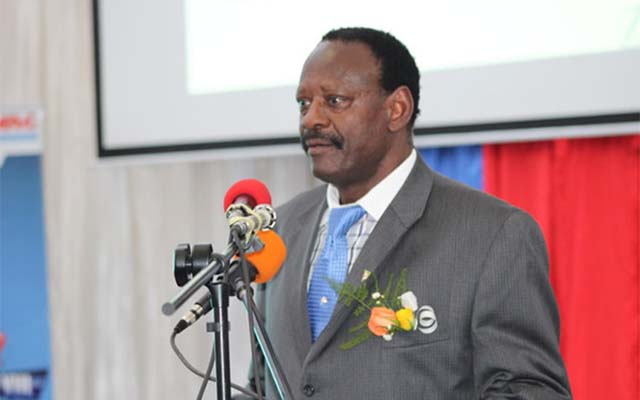EDITORIAL COMMENT: Parastatals must justify Govt support

Pressure is mounting on parastatals and State-owned enterprises to deliver or be “buried”, to use President Mugabe’s own words in September this year. These public entities have been a drain on the fiscus for years. The general sentiment is that they are serving no useful purpose and should be privatised or be shut down. Which option or combination eventually prevails can be debated.
The poor performance of parastatals and State-owned enterprises featured prominently once again on Wednesday this week when Chief Secretary to the President and Cabinet Dr Misheck Sibanda revealed these entities last year incurred a combined loss of $270 million. He also revealed that 70 percent of the 93 entities were technically insolvent. Thankfully, Dr Sibanda did point out where the malady lay from the survey and Auditor-General’s report; “Without doubt the most serious common weakness identified during the survey revolved around the structure, composition and competence of boards and the manner in which the boards themselves operate.”
The hope across the nation is that the soon-to-be-law Public Entities Corporate Governance Bill will plug these weaknesses and force greater openness and accountability in these entities. It is disappointing that while State-owned enterprises and parastatals should play a strategic role in national development and used to contribute more than 20 percent to the Gross Domestic Product, that figure has slumped to around 10 percent. Yet that has not stopped their executives from paying themselves hefty salaries and allowances.
Part of the problem, as identified in the survey, is clearly that the boards don’t know their roles or they are intimidated by the ministers who appoint them. They are not providing intelligent oversight over these important public companies. The proposed Act should deal with an anomaly where board members appear to serve the interests of the appointing minister ahead of the nation.
When Zim-Asset was launched in 2013, one of the key deliverables was the matter of performance-based management and hence remuneration. That doesn’t appear to have been followed up. When President Mugabe addressed captains of industry at State House on September 7 this year, he emphasised that line ministers should ensure SOEs and parastatals falling under them delivered to the people of Zimbabwe.
There is no evidence that there has been a change of culture if we go by the remuneration of executives. What this calls for then is an overhaul of the entire set up of these entities. (Unfortunately the opaque operations of boards in the private sector don’t offer role models given pervasive insider loans which often lead to company closures, corporate incest and collusive behaviour.) Board members must be appointed on merit, their remit be explicit — that their primary duty and allegiance is to the people of Zimbabwe. Chief executives must be given limited, performance-based contracts.
The job of a parastatal executive should not be a sinecure because of one’s connection to a minister. That is what so far has rendered most of them dysfunctional and such a horrible drain on Treasury. Privatisation of parastatals and SOEs, in our considered view, should come as a last resort if we are to avoid a repeat of the pitfalls and shock treatment of Esap. Private ownership is driven by the profit motive, not a service.
Most of our people are currently in the informal sector and can hardly afford the services, even when subsidised by the State. It can only get worse with privatisation. Secondly, the drive for profit means a lot of people employed in these parastatals and SOEs will join the lot of the lumpen proletariat who roam our streets looking for jobs. While the liberal view is that the private sector is the engine for economic growth, it is not known for preserving jobs.
Thirdly, given the anaemic state of the economy, few Zimbabweans have the financial muscle to buy the privatised entities. That means, without significant local competition, foreigners will pick up the firms at a huge bargain and give away discounts.
In short, we are not likely to derive maximum value for the entities we sell to foreigners. Without enough capital, we are also unable to negotiate beneficial joint deals with foreigners dangling cash, even if that cash is borrowed back home. We hope therefore that the Public Entities Corporate Governance Bill serves as a wakeup call for parastatal and SOE heads and boards to prove they deserve State protection from private sector vultures.










Comments